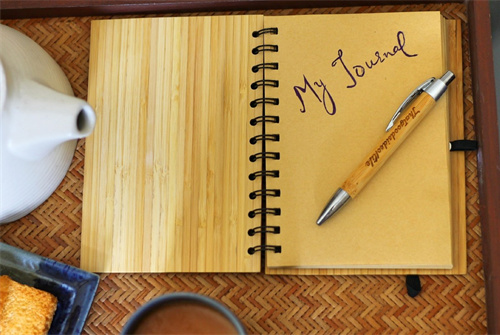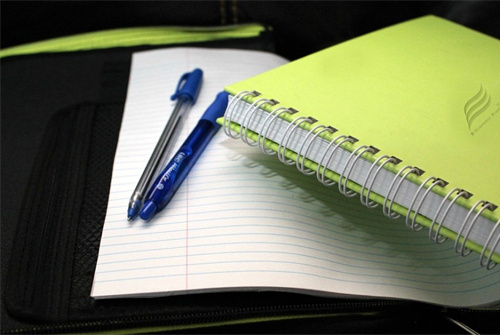七上英語的第一單元詞句 七年級上冊英語第一單元短語

【第1句】:七年級上冊英語第一單元短語
七年級 (上)重點句型和詞組 七年級(上) Uints 1-6 I.重點句型 Starter Good morning/afternoon/evening. Good morning/afternoon/evening. How are you? I'm fine,/OK,thanks. Fine,thanks. What's this in English? It's a map. It's V. Spell it please. K-E-Y. What color is it/the key? It's blue. The key is yellow. Hello, Frank. Hello/Hi, Eric. Unit 1 My name is Gina. What's your name? My name is Jenny. I'm Jenny. Jenny. Nice to meet you. Nice to meet you , too. What's his name? His name is Jenny. Jenny. What's her name? Her name is Linda.. Linda. What's your first name? My first name is Jack. Jack. What's your last/family name? My last/family name is Green. It's Green. What's your/his/her phone number? My /His/Her phone number is 234-4567 It's 281-91【第76句】: Unit 2 Is this your pencil? Is that/this/it your backpack? Yes, it is. No, it isn't . It's his backpack. This/That is my eraser. How do you spell it/pen? P-E-N. Call Allan at 486-67895 Call 685-6098 Call Mary. Phone # 235-78【第65句】: Is that your computer game in the lost and found case? Yes, it is. No, it isn't. Unit 3 This is my sister. That/This is his sister. These/Those are my two brothers. Is she your friend? Yes, she is. No, she isn't. Is he your brother? Yes, he is. No, he isn't. Thanks for the photo of your family. Here is my family photo. Who's your sister? This/She is my sister. Unit 4 Where's my backpack? Where's my backpack? It's under the table. Where are your baseballs? They're on the floor. Is the baseball on the sofa? Yes ,it is. No, it isn't. I don't know. Are they on the bed? Yes, they are. No, they aren't. Are these/those your books? Yes, they are. No, they aren't. Please take these things to your sister. Can you bring some things to school? The keys are in the drawer. Here's my room. Unit 5 Do you have a soccer ball? Do you have a ping-pong ball? Yes, I do. No, I don't. Does he/she have a tennis racket? Yes, he/she does. No, he/she doesn't. Let's play ping-pong. It's boring. That sounds good/interesting. I don't have a ping-pong ball. He/She doesn't have a volleyball. She/He has a great sports collection. We have many sports clubs. He watches them on TV. Do you have some more paper? Yes, I do. No, I don't. Unit 6 Do you like bananas? Do you like hamburgers? Yes, I do. No, I don't. Does he/she like a salad? Yes ,he/she does. No ,he/she doesn't. She/He likes hamburgers for lunch. She doesn't like hamburgers. Let's have French fries. For dinner, she has chicken and tomatoes. Great!。
【第2句】:七年級上冊英語預備篇1單元所有句子 急用呀
剛好 我也上初一
1 good
2 morning
3 Good morning
4 hi
5 hello
6 I
7 am
8 I am
9 are
10 you
11 yes
12 nice
13 to
14 meet
15 too
16 welcome
17 China
18 thanks
19 Miss
20 see
21 let
22 us
23 let's = let us
24 begin
25 stand
26 up
27 stand up
28 class
29 sit
30 down
31 sit down
32 please
33 thank
34 Thank you
35 this
36 is
37 my
38 Mr. = mister
39 mom
40 teacher
41 how
42 do
43 How do you do?
44 How are you?
45 fine
46 and
47 OK
48 good-bye
49 bye
50 afternoon
51 Good afternoon
52 later
53 See you later.
54 See you.
55 bye-bye
樓主給分 好幸苦的呢
【第3句】:七年級上冊英語第一單元短語
七年級<;新目標英語>; (上)重點句型和詞組 七年級(上) Uints 1-6 I.重點句型 Starter Good morning/afternoon/evening. Good morning/afternoon/evening. How are you? I'm fine,/OK,thanks. Fine,thanks. What's this in English? It's a map. It's V. Spell it please. K-E-Y. What color is it/the key? It's blue. The key is yellow. Hello, Frank. Hello/Hi, Eric. Unit 1 My name is Gina. What's your name? My name is Jenny. I'm Jenny. Jenny. Nice to meet you. Nice to meet you , too. What's his name? His name is Jenny. Jenny. What's her name? Her name is Linda.. Linda. What's your first name? My first name is Jack. Jack. What's your last/family name? My last/family name is Green. It's Green. What's your/his/her phone number? My /His/Her phone number is 234-4567 It's 281-91【第76句】: Unit 2 Is this your pencil? Is that/this/it your backpack? Yes, it is. No, it isn't . It's his backpack. This/That is my eraser. How do you spell it/pen? P-E-N. Call Allan at 486-67895 Call 685-6098 Call Mary. Phone # 235-78【第65句】: Is that your computer game in the lost and found case? Yes, it is. No, it isn't. Unit 3 This is my sister. That/This is his sister. These/Those are my two brothers. Is she your friend? Yes, she is. No, she isn't. Is he your brother? Yes, he is. No, he isn't. Thanks for the photo of your family. Here is my family photo. Who's your sister? This/She is my sister. Unit 4 Where's my backpack? Where's my backpack? It's under the table. Where are your baseballs? They're on the floor. Is the baseball on the sofa? Yes ,it is. No, it isn't. I don't know. Are they on the bed? Yes, they are. No, they aren't. Are these/those your books? Yes, they are. No, they aren't. Please take these things to your sister. Can you bring some things to school? The keys are in the drawer. Here's my room. Unit 5 Do you have a soccer ball? Do you have a ping-pong ball? Yes, I do. No, I don't. Does he/she have a tennis racket? Yes, he/she does. No, he/she doesn't. Let's play ping-pong. It's boring. That sounds good/interesting. I don't have a ping-pong ball. He/She doesn't have a volleyball. She/He has a great sports collection. We have many sports clubs. He watches them on TV. Do you have some more paper? Yes, I do. No, I don't. Unit 6 Do you like bananas? Do you like hamburgers? Yes, I do. No, I don't. Does he/she like a salad? Yes ,he/she does. No ,he/she doesn't. She/He likes hamburgers for lunch. She doesn't like hamburgers. Let's have French fries. For dinner, she has chicken and tomatoes. Great!。
【第4句】:人教版七年級上冊的英語書 第一單元的所有單詞
第一單元單詞及短語
【第1句】: my 我的pron.
【第2句】: name 名字n.
【第3句】: is 是v.
【第4句】: clock 時鐘n.
【第5句】: I 我pron.
【第6句】: am 是v.
【第7句】: I'm =I am
【第8句】: nice 好的;令人愉快的adj.
【第9句】: to 用于與動詞原形一起構成動詞不定式 prep.
【第10句】: meet 遇見;相逢v.
【第11句】: you 你;你們pron.
【第12句】: what 什么 pron.& adj.
【第13句】: what's =what is
【第14句】: your 你的;你們的pron.
【第15句】: hello (表示問候)喂int.
【第16句】: hi (表示問候)嗨int.
【第17句】: his 他的pron.
【第18句】: and 和;又;而且conj.
【第19句】: her 她的pron.
【第20句】: question 問題;難題;詢問;疑問n.
【第21句】: answer 問答;答復;答案n.
【第22句】: look 看;望;看起來v.
【第23句】: first 第一num.
【第24句】: first name 名字
【第25句】: last 最后的;上一個的adj.
【第26句】: last name 姓氏
【第27句】: boy 男孩n.
【第28句】: girl 女孩n.
【第29句】: zero 零num.
【第30句】: one 一num.
【第31句】: two 二num.
【第32句】: three 三num.
【第33句】: four 四num.
【第34句】: five 五num.
【第35句】: six 六num.
【第36句】: seven 七num.
【第37句】: eight 八num.
【第38句】: nine 九num.
【第39句】: telephone 電話n.
【第40句】: number 數;數字n.
【第41句】: telephone number 電話號碼
【第42句】: phone 電話;電話機n.
【第43句】: phone number 電話號碼
【第44句】: it 它pron. 45 it's=it is
【第46句】: card 卡;卡片n
【第47句】: ID card (ID=identification) 身份證
【第48句】: family 家;家庭n.
【第49句】: family name 姓氏
【第5句】:七年級上冊人教版1~9單元英語筆記
一. 詞匯 ⑴ 單詞 【第1句】: 介詞:in, on, under, behind, near, at, of 1). in表示"在……中", "在……內"。
例如: in our class 在我們班上 in my bag 在我的書包里 in the desk 在桌子里 in the classroom 在教室里 2). on 表示"在……上"。例如: on the wall 在墻上 on the desk 在桌子上 on the blackboard 在黑板上 3). under表示"在……下"。
例如: under the tree 在樹下 under the chair 在椅子下 under the bed 在床下 4). behind表示"在……后面"。例如: behind the door 在門后 behind the tree 在樹后 5). near表示"在……附近"。
例如: near the teacher's desk 在講桌附近 near the bed 在床附近 6). at表示"在……處"。例如: at school 在學校 at home 在家 at the door 在門口 7). of 表示"……的"。
例如: a picture of our classroom 我們教室的一幅畫 a map of China 一張中國地圖 【第2句】: 冠詞 a / an / the: 冠詞一般位于所限定的名詞前,用來署名名詞所指的人或事物。冠詞有不定冠詞和定冠詞兩種。
不定冠詞有兩個形式,即a和an。a用在以輔音音素開頭的詞前,如a book; an用在以元音音素開頭的字母前,如an apple. a或an與可數名詞單數連用,泛指某類人或某物中的一個。
This is a cat. 這是一只貓。 It's an English book. 這是一本英語書。
His father is a worker. 他的爸爸是個工人。 the既可以用在可數名詞前,也可以用在不可數名詞前,表示某個或某些特定的人或事物,也可以指上文提到過的人或事物。
Who's the boy in the hat? 戴帽子的男孩是誰呀? ------ What can you see in the classroom? ------ I can see a bag. ------ Where's the bag? ------ It's on the desk. ------- 你能在教室里看到什么呀? ------ 我能看見一個書包。 ------ 書包在哪呀? ------ 在桌子上。
【第3句】:some和any ①在肯定句中用some.例如: There are some books on the desk.桌子上有一些書。 Lucy has some good books露西有一些好書。
②在疑問句和否定句中用any。例如: Is there any ink in your pen?你的鋼筆里有墨水嗎? Do you have any brothers and sisters?你有兄弟姐妹嗎? There isn't any water in the glass.杯子里沒有水。
⑵記住它們的特殊用法。 ①some亦可用于表示盼望得到對方肯定的答復或表示建議、委婉請求的疑問句中,這一點我們不久就會學到。
例如: Would you like to have some apples?你想吃蘋果嗎? ②any也可用于肯定句中,表示"任何的"。例如: Any one of us can do this.我們當中任何一個都能做這個。
some 和any的用法是經常出現的考點,希望大家能準確地掌握它們的用法。 【第4句】:family family看作為一個整體時,意思是"家庭",后面的謂語動詞be用單數形式 is ;如把family看作為家庭成員時,應理解為復數,后面的謂語動詞be應用are。
My family is a big family. 我的家庭是個大家庭。 My family are all at home now. 我的家人現在都在家。
Family強調由家人組成的一個集體或強調這個集體中的成員。home指個人出生、被撫養長大的環境和居住地點。
house指"家"、"房屋",側重居住的建筑本身。 His family are all workers. 他的家人都是工人。
My home is in Beijing. 我的家在北京。 He isn't at home now. 他現在不在家。
It's a picture of my family. 這是一張我全家的照片。 【第5句】: little的用法 a little dog 一只小狗,a little boy 一個小男孩。
little常用來修飾有生命的名詞。 *但little還可表示否定意義,意為"少的",加不可數名詞。
There is little time. 幾乎沒時間了。 There is little water in the cup. 杯中水很少。
⑵ 詞組 on the desk 在桌子上 behind the chair 在椅子后 under the chair 在椅子下面 in her pencil-box 在她的鉛筆盒中 near the door 在門附近 a picture of a classroom 一個教室的圖片 look at the picture 看這張圖片 the teacher's desk 講桌 a map of China 一張中國地圖 family tree 家譜 have a seat 坐下,就坐 this way 這邊走 二. 日常用語 【第1句】: Come and meet my family. 【第2句】: Go and see. I think it's Li Lei. 【第3句】: Glad to meet you. 【第4句】: What can you see in the picture? I can see a clock / some books. 【第5句】: Can you see an orange? Yes, I can. / No, I can't. 【第6句】: Where's Shenzhen? It's near Hong Kong. 【第7句】: Let me see.(口語)讓我想想看。 see 在這是"明白、懂了",不可譯作"看見"。
例如: 【第8句】: Please have a seat. seat表示"座位",是個名詞。have a seat表示"就坐",也可以說take a seat, 和sit down的意思相同。
三. 語法 【第1句】: 名詞所有格 名詞如要表示與后面名詞的所有關系,通常用名詞所有格的形式,意為"……的"。一般有以下幾種形式: (1). 一般情況下在詞尾加"'s"。
例如: Kate's father Kate的爸爸 my mother's friend 我媽媽的朋友 (2). 如果復數名詞以s結尾,只加"'"。例如: Teachers' Day 教師節 The boys' game 男孩們的游戲 (3). 如果復數名詞不以s結尾,仍加"'s"。
例如: Children's Day 兒童節 Women's Day 婦女節 (4). 表示兩個或幾個共有時,所有格應加在后一個名詞上。例如: Lucy and Lily's room Lucy 和Lily的房間 Kate and Jim's father Kate 和Jim的爸爸 動物和無生命事物的名詞的所有格一般不在詞尾加"'。
【第6句】:初一英語每單元主要句子
人教版新目標英語七年級(下)各單元知識概要 Unit 1 Where's your pen pal from? 【第1句】:詞組 be from= come from 來自。
pen pal=pen friend 筆友 like and dislike 好惡;愛憎 live in….在。居住 speak English 講英語 play sports 做體育運動 a little French 一些法語 go to the movies 去看電影 an action movie 一部動作片 on weekends 在周末 Excuse me 對不起,打擾 get to 到達、抵達 beginning of 在。
開始的時候 at the end of 在。結束的時候 arrive at / 【第2句】:句型 (1)、Where主 +be+主語+from? 主語+be+from+地點. (2)、Where do/does+主語+live? 主語+live/lives in… (3)、What language do/does +主語+speak? 主語+speak/speaks…. (4)、主語+like/likes+doing… 【第3句】:日常交際用語 1-Where is your pen pal from? -He's from China. 2-Where does she live? --She lives in Tokyo. 3-Does she speak English? -Yes,she does/No,she dosen't. 4-Is that your new pen pal? -Yes,he is /No,he isn't. 5-What language does she speak? -She speaks English. Unit 2 Where's the post office 【第1句】:詞組 post office 郵局 pay phone 投幣式公用電話 next to 在。
隔壁 across from 在。對面 in front of 在。
前面 between…and… 在。和。
之間 on a street 在街上 in the neighborhood 在附近 on the right/left 在右邊/在左邊 on one's right/left 在某人的右邊/左邊 turn right/left 向右/左轉 take a walk 散步 have fun 玩得開心 the way to …去。的路 take a taxi 打的/乘出租車 go down(along)…沿著。
走 go through。穿過。
have a good trip 旅途愉快 【第2句】:句型 (1)、Is there a bank near here? Yes,there is .It's on Centre Street. No,there isn't. (2)、Where's the sumpermarket? It's next to the library. (3)、Bridge Street is a good place to have fun. (4)、I hope you have a good trip. (5)、If you are hungry,you can buy food in the restaurant. (6)、Talk a walk though the park.. (7)、enjoy后接名詞或動詞-ing形式. Do you enoy(=like) your work? Do you enjoy(=like) living in the city? 【第3句】:日常交際用語 (1)、Is there a ….?句型Eg: -Excuse me.Is there a hotel in the neighborhood. -Yes, there is. No.there isn't (2)、Where is …?句型Eg: -Where is the park,please? -It's behind the bank.(肯定回答) -I'm sorry I don't know. (否定回答) (3)、Which is the way to +地點? 句型.例如: - Which is the way to the library. (4)、How can I get to +地點?句型.例如: -How can I get to the restaurant? (5)、Can you tell me the way to +地點?句型.例 - Can you tell me the way to the post office? (6)、Let me tell you the way to my house. (7)、Just go straight and turn left. Unit 3 Why do you like koalas? 【第1句】:詞組 want to do sth .想要做某事 want sb to do sth 想要某做某事 want sth 想要某物 Let sb do sth 讓某人做某事 kind of 有幾分種類 a kind of 一種… …years old …年齡 如:ten years old 十歲 like to do sth 喜歡做某事 like doing sth play with … 與。一起玩 be quiet 安靜 during the day 在白天 at night 在夜間 have a look at.. 看。
one…the other 一個。另一個。
【第2句】:句型 (1)、-why do you like pandas? -Because they're very cure. (2)、-Why dose he like koalas? -Because they are kind of interesting. (3)、-Where are lions from? -Lions are from South Africa. (4)、-What animals do you like? -I like elephants. 【第3句】:日常交際用語 (1)、-Let's see the lions. (2)-Why do you want to see the lions? -Becase they are very cute. (3)-Do you like giraffes? Yes,I do./ No,I don't (4)-What other animal do you like? _I like dogs.too other+ 名詞的復數.表示沒有特定的數量范圍 the other+名詞的復數表示有特定的數量范圍. (5)-Why are you looking at me? -Because you are very cute. (6)-Let us play games. –Great! Let me see. Unit 4 I want to be an actor. 【第1句】:詞組 want to be+職業 想要成為。
shop assistant 店員 bank clerk 銀行職員 work with 與。
一起工作 work hard 努力工作 work for 為。
而工作 work as 作為。
而工作 get.. from…從。
獲得。
give sth.to.sb /give.sb.sth 把某物給某人 正確的表示:give it/them to sb. 錯誤的表示:give sb.it/them in the day 在白天 at night 在夜間 talk to /with 與…講話 go out to dinners 外出吃飯 in a hospital 在醫院 newspaper reporter 報社記者 movie actor 電影演員 【第2句】:句型 (1)-What do/does+某人+do? 例:-What do you do?-I'm a student. -What dose he do? He's a teacher. (2)-What do/does+某人+want to be? 例:What do you want to be?-I want to be a teacher. -What does she want to be ?She want to be a nuser. (3)-Where does your sister work? -She works in a hospital. (4)-Does he work in the hospiat Yes.he does/No,he doesn't (5)-Does she work late? -Yes,she does/No.she doesn't (6)-英語中詢問職業的幾種表達方式: What do/does …do? What is…? What is your father? What's one's job?例:What's your father's job? Unit 5 I'm watching TV. 一。









